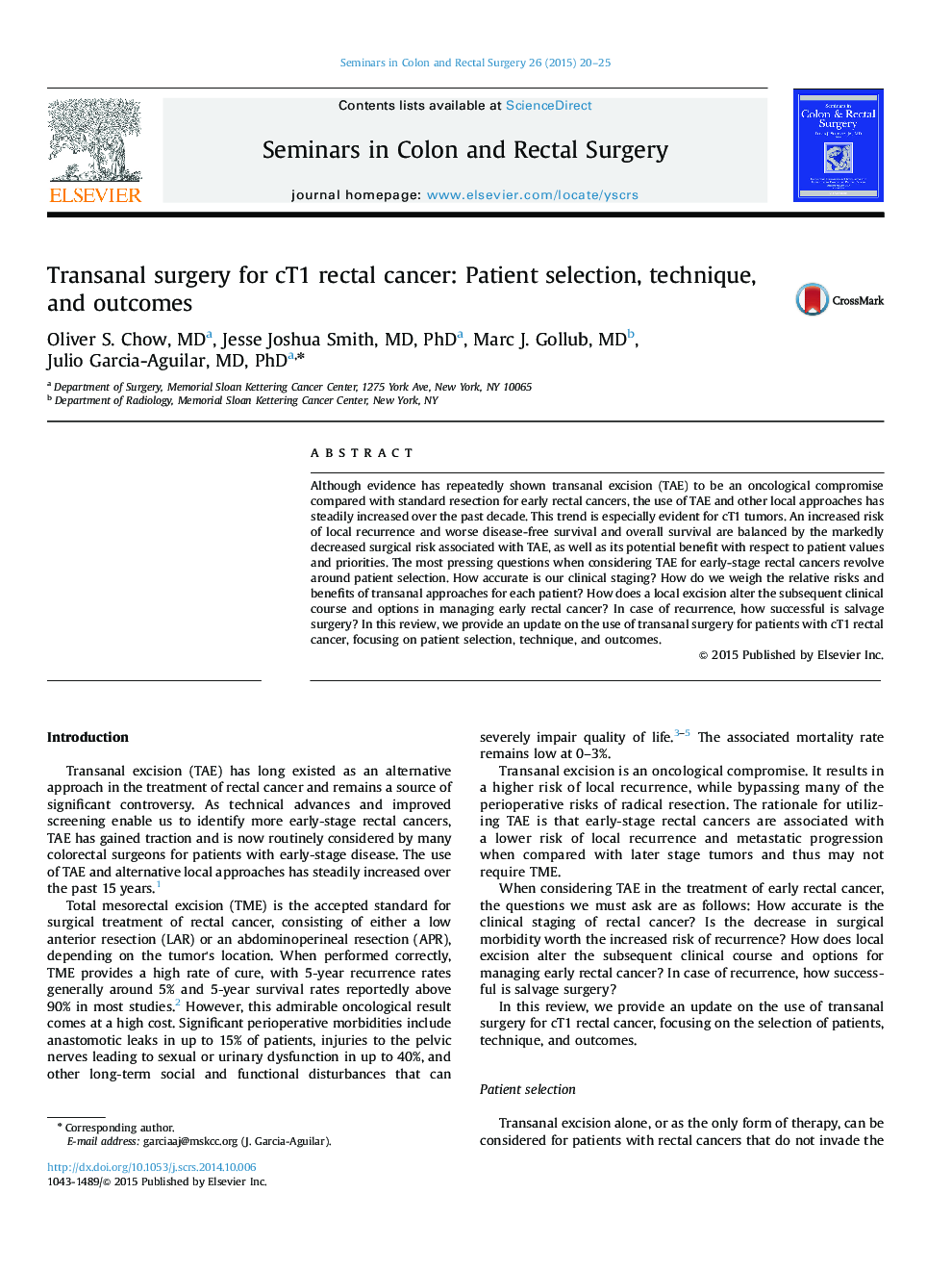| Article ID | Journal | Published Year | Pages | File Type |
|---|---|---|---|---|
| 3319321 | Seminars in Colon and Rectal Surgery | 2015 | 6 Pages |
Although evidence has repeatedly shown transanal excision (TAE) to be an oncological compromise compared with standard resection for early rectal cancers, the use of TAE and other local approaches has steadily increased over the past decade. This trend is especially evident for cT1 tumors. An increased risk of local recurrence and worse disease-free survival and overall survival are balanced by the markedly decreased surgical risk associated with TAE, as well as its potential benefit with respect to patient values and priorities. The most pressing questions when considering TAE for early-stage rectal cancers revolve around patient selection. How accurate is our clinical staging? How do we weigh the relative risks and benefits of transanal approaches for each patient? How does a local excision alter the subsequent clinical course and options in managing early rectal cancer? In case of recurrence, how successful is salvage surgery? In this review, we provide an update on the use of transanal surgery for patients with cT1 rectal cancer, focusing on patient selection, technique, and outcomes.
